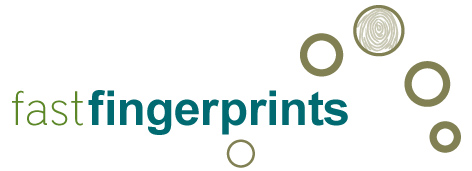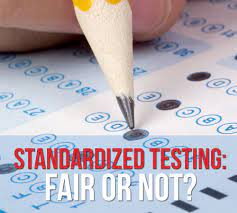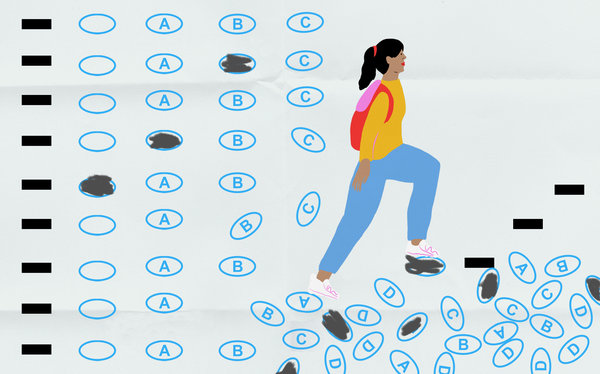Event Invitation – The Future of Education: Divisive Concepts in the Classroom
November 29th, 2021Students in the Judith Herb College of Education course titled Schooling and Democratic Society are hosting a town hall about Ohio House bills 322 and 327 from 5:30 to 7 p.m. Wednesday, Dec. 8, in Health and Human Services Building Room 1600 on Main Campus. Free parking is available for the event only in lots 1N and 1S.
The event, titled “The Future of Education: Divisive Concepts in the Classroom” and sponsored by the UToledo Department of Educational Studies, will begin with an overview of the bills and a working definition of “divisive.” A panel of speakers will lay out issues, and participants will be invited to voice or submit questions and short statements. The list of panelists is being finalized.
To attend the Dec. 8 event virtually, preregister via Webex.
FREE TO TALK: An Interactive Conversation About Mental Health
November 2nd, 2021FREE TO TALK: An Interactive Conversation About Mental Health
November 9, 2021
7-8 p.m
Collier Building Room 1200 (Health Science Campus)
Dr. Spann – Distinguished Alumni Winner
October 11th, 2021Congratulations to Dr. Sammy Spann (PhD ’09), the Judith Herb College of Education’s Distinguished Alumni winner. Dr. Spann was recognized at the UToledo Homecoming Gala on Oct. 8, 2021.
Aside from UToledo’s president, Dr. Sammy Spann may be the most popular name on campus in the eyes of students. As associate Vice President and dean of students, Spann has unparalleled experience with the university. First starting as an employee of UToledo in 2002, Spann now offers leadership, administrative oversight and support to the Division of Student Affairs and several other offices.
Yippee Sammy!
Grant Award: LAUNCHING EDUCATORS FOR ALL LEARNERS
September 17th, 2021The Judith Herb College of Education has recently been awarded a grant from the Ohio’s Dean Compact.
The project, entitled Launching Educators for All Learners: UToledo’s Dual License Initiative, will redesign the University of Toledo’s successful graduate-level licensure programs for middle childhood education and adolescent and young adult education. The outcome of this work will result in inclusive graduate-level teacher preparation programs which prepare educators to meet the needs of all learners, particularly those with diverse learning needs. The revised programs will be grounded in culturally responsive practices and leads to dual licensure (e.g., middle childhood education + 4-9 intervention specialist; adolescent young adult education + 7-12 intervention specialist) and a Master of Education.
The two year project is in collaboration with school partners Toledo Public Schools and Washington Local Schools. The co-principal investigators are Richard Welsch, Jenny Denyer, and Rebecca Schneider.
Program redesign is an exciting opportunity to ensure further Rocket educators are well prepared for launching their careers as educators.
Best Wishes Student Teachers
September 16th, 2021Best wishes to our Fall 2021 student teachers! The candidates began the semester with a day of professional development and learning on campus. These bright candidates are eager to begin teaching and making an impact on young learners. Have a wonderful semester!
Special thanks to all of our partner schools for mentoring the next generation of #RocketEducators
Study Shows Motivation is Key for Teachers to Overcome Racial Bias in Classroom
September 9th, 2021
|
|
written by Christine Billau
Fingerprint Day – Aug 24th
August 4th, 2021COMPLETE YOUR BACKGROUND CHECK IN GILLHAM HALL
ONE DAY ONLY!
As a convenience for our students, fastfingerprints will be at the Judith Herb College of Education to process background checks on Tuesday, August 24, 2021
A current background check is required to be on file before any field experience begins. Background checks are current for one calendar year.
This is a great opportunity to get your background check completed without having to go to the UT Police Dept. or to an off-campus business.
Background checks are required for students who are:
- taking EDU 1700 Intro to Education
- taking CIEC 4340 Infant & Toddler
- completing any professional education-level method/practicum experience
Tuesday August 24, 2021
9:30 a.m to 2:30 p.m.
Student Services – 3100 Gillham Hall
Appointment required. Click Here.
Registration Forms: (bring the completed registration form with you to your scheduled appointment)
- Fastfingerprints registration form – Ohio residents
- Fastfingerprints registration form – Michigan residents
Cost: $72 for BCI & FBI background check
Payable: cash, check, or credit card
Individual student responsible for payment
CELEBRATING SUCCESS: Chelsey Neff
April 30th, 2021CELEBRATING SUCCESS: UToledoNEWS recognizes the Class of 2021 with a series of stories featuring students receiving their degrees at spring commencement.
Chelsey Neff (AYA major) was features in the news series on April 30, 2021.
Click here read the whole story.
KAPPA DELTA PI INDUCTS 25 NEW MEMBERS
April 5th, 2021ZETA EPSILON, UNIVERSITY OF TOLEDO’S CHAPTER OF KAPPA DELTA PI, INTERNATIONAL HONOR SOCIETY IN EDUCATION, INDUCTS 25 NEW MEMBERS
Kappa Delta Pi International Honor Society in Education, is pleased to announce that 25 students were inducted virtually into the Zeta Epsilon Chapter of the society at the University of Toledo.
Because of continued restrictions of COVID, it was not possible to hold an in-person gathering to induct and celebrate the academic achievements of the twenty-five University of Toledo students joining Kappa Delta Pi International Honor Society. As a result, this year’s inductees into the Zeta Epsilon Chapter of Kappa Delta Pi International Honor Society completed a virtual induction ceremony.
The Society inducts only those individuals who have exhibited the ideals of scholarship, integrity in service, and commitment to excellence in teaching and its allied professions. Selection as a member of Kappa Delta Pi is based on high academic achievement, a commitment to education as a career, and a professional attitude that assures steady growth in the profession.
Spring 2021 KDP Inductees
| Tara Beyer | Madelyn Eye | Matthew Kimura | Elizabeth Razzoog |
| Megan Brown | Nicole Goe | Mackenzie Kruszka | Andrew Rinck |
| McKenzie Camerieri | Chitranjan Greer-Travis | Cali Leiby | Tiffany Rowland |
| Caitlin Colter | Jamison Halliday | Melanie Miller | Grace Schlageter |
| Sarah DeWitt | Claire Hensley | Amanda Nagy | Raymond Tomanski |
| Averia Dunbar | Amber Hunter | Victoria Pope | Ashley Vargas |
| Stephanie Wheeler |
About Kappa Delta Pi
Kappa Delta Pi, International Honor Society in Education, is a 501 (c) (3) organization established in 1911 to recognize and promote excellence in education, provide a reasoned voice for significant issues, and link learning communities of educators. Through its programs, services, and strategic partnerships, KDP supports the professional growth and teaching practices of educators throughout all phases and levels of their careers. The organization currently has more than 600 chapters and an active membership of nearly 40,000 worldwide.
INCREASING EQUITY AND ACCESS – professional education admissions
March 25th, 2021INCREASING EQUITY AND ACCESS – changing professional education admissions criteria
There is a growing skepticism about standardized test scores. Concerns about bias, reliability, and objectiveness have some researcher questioning if standardized test scores should be used in high-stakes situations.
The Council for the Accreditation of Educator Preparation (CEAP), the national accrediting body for the Judith Herb College of Education, has approved a revised set of standards: the 2022 CAEP Initial Level Standards
One important change with the revised standards is that colleges of education are no longer required to monitor standardized test scores in reading, writing, and mathematic skills for future educators. This change is a direct result of CAEP’s action to create more socially just and equitable practices. Standardized tests have presented barriers to candidates from underrepresented minorities and low socioeconomic backgrounds. Hence, standardized test scores are no longer required for institutions to be accredited.
In turn, the JHCOE has adjusted our requirements for admission to professional education to align with the 2022 CAEP Standards. We have removed the testing requirement, effective immediately. The college’s requirements for admission to professional education can be found at this link: https://www.utoledo.edu/education/studentservices/praxis-information.html
This change will afford a more diverse group of students the opportunity to enter professional education-level and matriculate to graduation. #RocketEducator



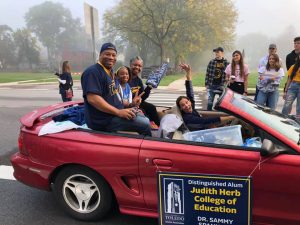

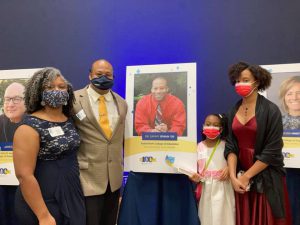
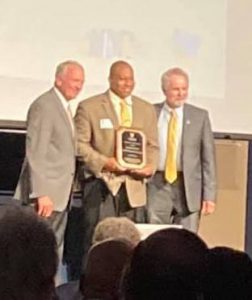
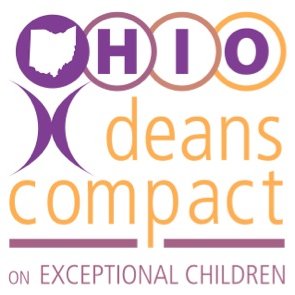

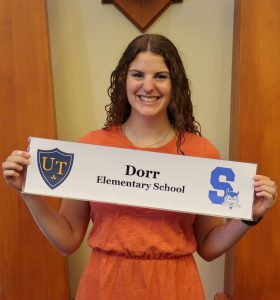
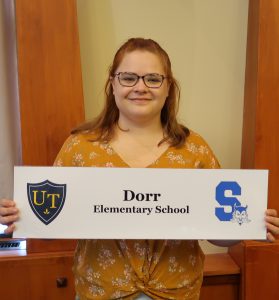

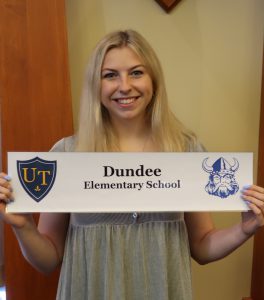
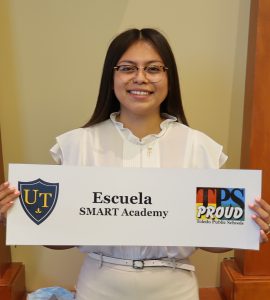
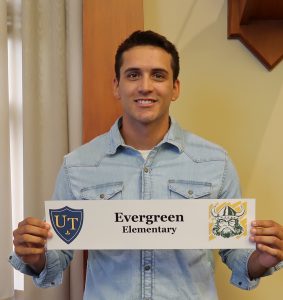
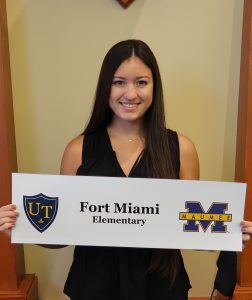
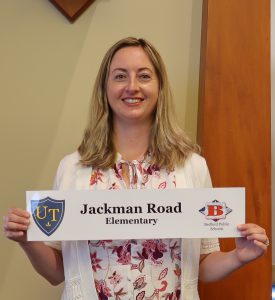
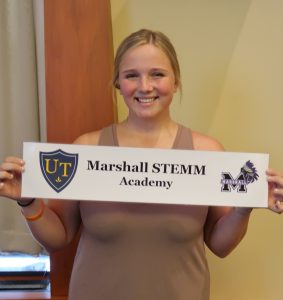
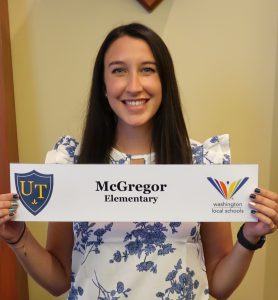
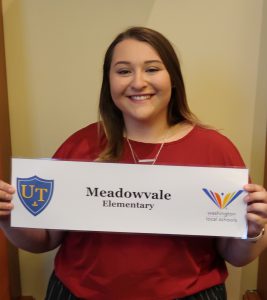
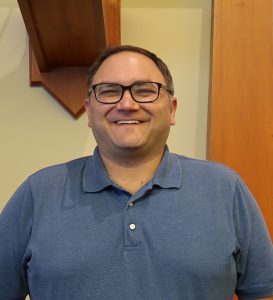
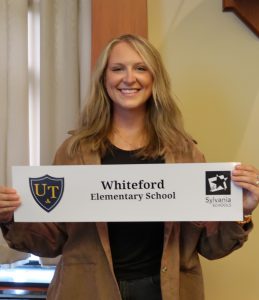
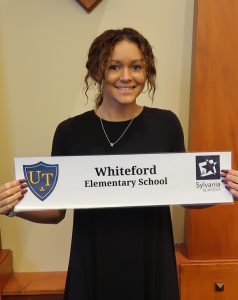
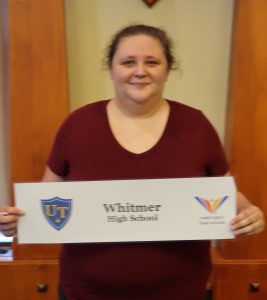
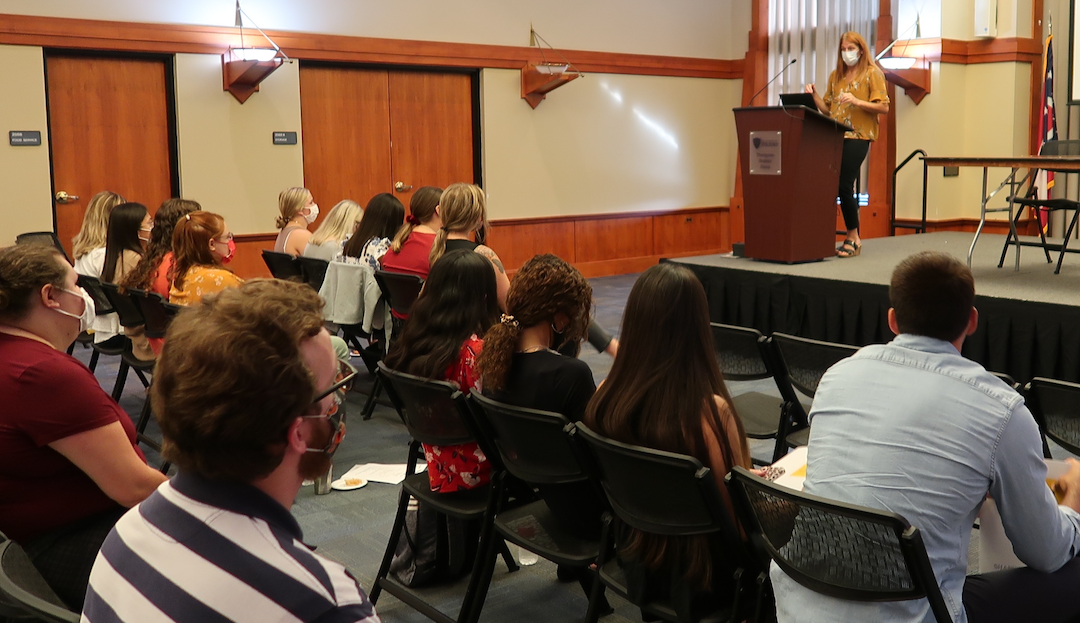
 “All of us carry biases — it’s natural because we’re human,” said Dr. Revathy Kumar, professor of educational psychology in The University of Toledo Judith Herb College of Education. “What we do about our awareness of those biases makes a difference to our students, their comfort in the classroom, their academic efficacy, self-esteem and academic performance. It is vital for teachers to be motivated to be genuinely unprejudiced to overcome racial bias and create an inclusive learning environment.”
“All of us carry biases — it’s natural because we’re human,” said Dr. Revathy Kumar, professor of educational psychology in The University of Toledo Judith Herb College of Education. “What we do about our awareness of those biases makes a difference to our students, their comfort in the classroom, their academic efficacy, self-esteem and academic performance. It is vital for teachers to be motivated to be genuinely unprejudiced to overcome racial bias and create an inclusive learning environment.”